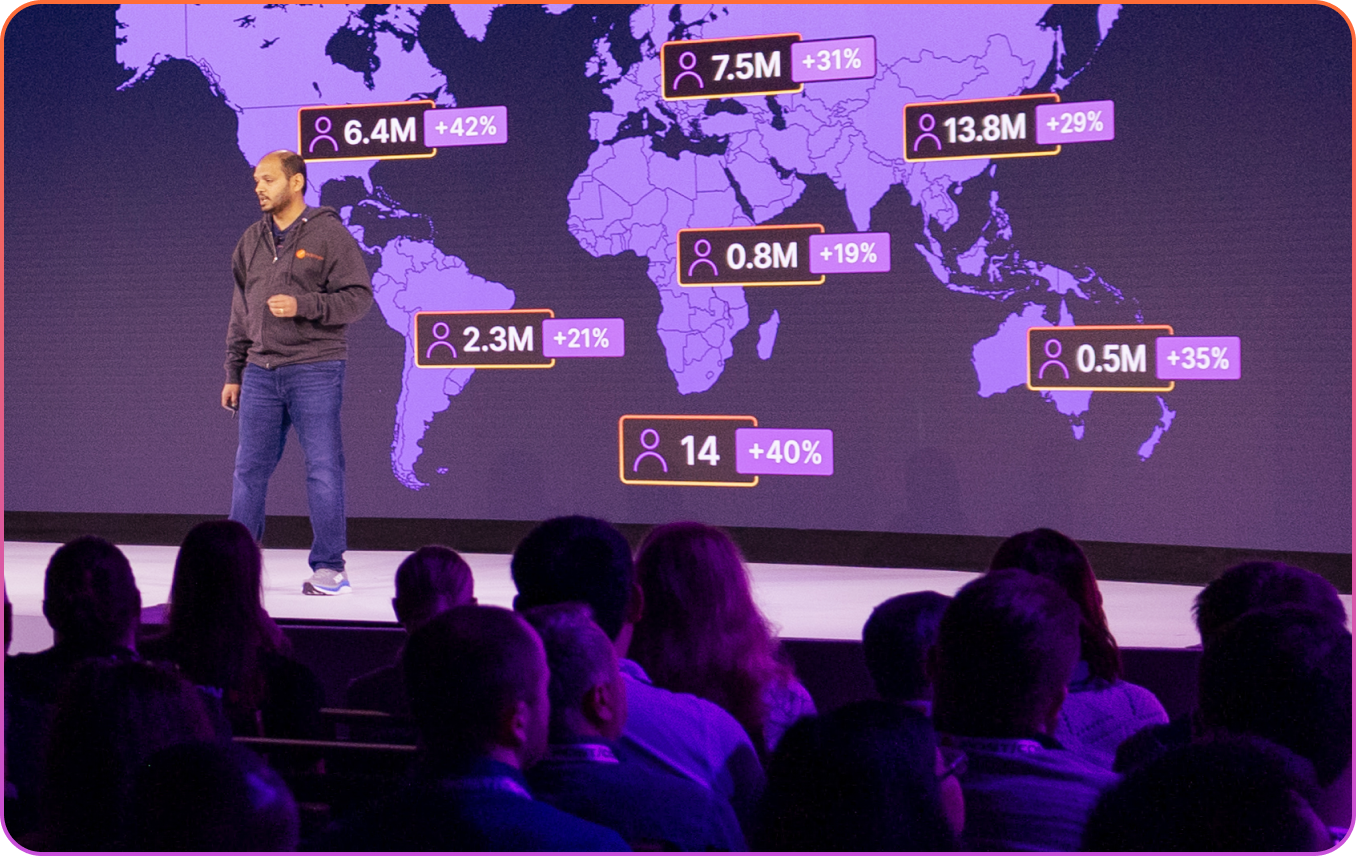ChargeHub increases developer productivity and improves API quality with Postman
About
Knowing where to get gasoline has never been much of a challenge for drivers in North America. But for drivers of electric vehicles, finding chargers on the road can be hit and miss. Since 2012, ChargeHub has made it easy for drivers and data partners to locate nearly all 120,000+ public EV charging points across North America.
Downtime for such a vital service is unacceptable. As such, Postman has been crucial in ensuring developer productivity and code quality by taking care of ChargeHub's API testing, documentation, and monitoring.
Results
3x increase in developer productivity
Single workflow for internal and external APIs
Improved productivity and quality through CI integration
The Challenge
ChargeHub's promise is a big one to fulfill: they want to help fuel electric vehicle adoption by making it easier to find and use North America's 120,000+ public EV charging stations. That means bringing together real-time data from third-party providers, as well as ChargeHub's community of drivers. They then aggregate, quality check, and package that data to make it available directly to drivers through ChargeHub's own mobile and web apps. ChargeHub is also featured in mapping products, in-car entertainment systems, and elsewhere via the ChargeHub API. Recently, the company has launched ChargeHub Passport, which lets drivers use multiple charging networks all from a single app.
That makes ChargeHub an essential service for thousands of consumers, while strict SLAs govern API availability to partners. There's no room for downtime or inaccurate data when it could mean the difference between a driver finding a charger or being unable to continue their journey. For ChargeHub's agile engineering teams, maintaining that always-on platform means meeting high-quality standards without compromising productivity.
The Solution
The ChargeHub engineering leadership identified three key ways of ensuring both quality and productivity: standardizing communication, automating tedious tasks, and maximizing the autonomy of individual engineers. To enable both of those goals, they put Postman at the center of their development process.
Postman Collections accelerate handoff between teams
ChargeHub's engineering teams each take responsibility for a particular element of the product, such as their consumer mobile app or a specific internal API. Efficient communication between these teams is essential when, for example, a mobile developer from one team needs to consume a new API created by another team.
ChargeHub's engineering leadership identified handover between teams as a particularly risky moment in their development lifecycle, with ad hoc methods of teaching and learning APIs damaging both productivity and code quality.
Since standardizing on Postman Collections as the way to manage API assets, handover between teams is now a simple matter of providing access to the relevant Postman Collection. With that, the implementing team has access to documentation, ready-to-run tests, and pre-configured environments.
Postman ensures tests are run every time
As part of their mission to automate tedious tasks, the ChargeHub team has integrated Postman's command-line tool, Newman, into their CI pipeline. Each time new code is merged into ChargeHub's main branch, the CI pipeline triggers Newman to run the appropriate integration and regression tests in Postman. This ensures that test failures are caught before a potential problem enters production, allowing developers to focus on delivering functionality.
Similarly, the ChargeHub team makes extensive use of Postman API monitors to provide instant alerts of API availability issues and a detailed dashboard to track performance over time.
“Postman is such a low cost compared to the value it brings in ensuring that we hit high-quality standards each and every time we release something new.”Olivier Proulx, CTO and Co-founder, ChargeHub
Postman standardizes ChargeHub's workflow across multiple data sources
ChargeHub aggregates data from multiple charging networks, government agencies, API partners, and their community of drivers. Each data source brings its own standards and requirements. For example, some APIs deliver data as XML, and others deliver data as JSON.
The ChargeHub team has reduced the complexity of working with these disparate standards by creating a Postman Collection for each external API. This gives the company's developers a standard way of interacting with those data sources, which means they only need to learn one workflow for every external API they use.
The Outcome
Integrating Postman into their development workflow has profoundly impacted ChargeHub's ability to deliver new functionality for its community of drivers and its partners.
Handover between teams has become smoother and more efficient, with Postman enabling engineers to learn new internal APIs autonomously. Similarly, using Postman as the standard interface to external APIs has reduced the overhead of context switching between different data delivery methods and access patterns.
Automated testing, recently enhanced through an integration with ChargeHub's CI pipeline, has had perhaps the greatest impact on the company's ability to iterate. Removing the need for manual testing has not only shaved time from their integration process, it has also boosted developer motivation. Today, ChargeHub developers can focus more on delivering exciting new functionality rather than the less interesting work of testing.
“Automating tests in Postman has led to a threefold increase in productivity as developers are now free to focus their creativity on delivering new functionality.”Olivier Proulx, CTO and Co-founder, ChargeHub
Postman API monitors ultimately give the ChargeHub team the peace of mind that their APIs are serving both their partners and their own consumer apps at peak performance around the clock.
The future for ChargeHub continues to be bright, with plans to surface their functionality in more places. Postman is at the heart of those plans, as the company next works to improve internal discovery with a directory of endpoints in a Private API Network.
Contact Enterprise sales
Join these companies and more than 35 million developers who are already building, running, and distributing APIs with Postman.
Case studies
See a wide selection of detailed use cases from nearly every industry on the Postman case studies page.
